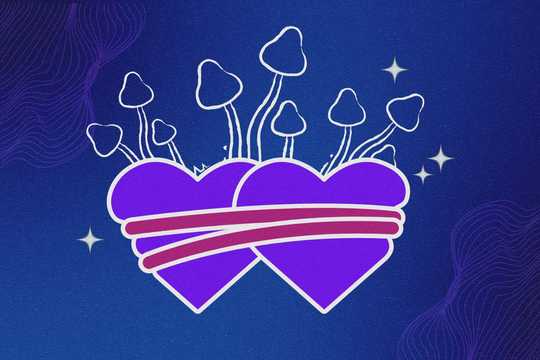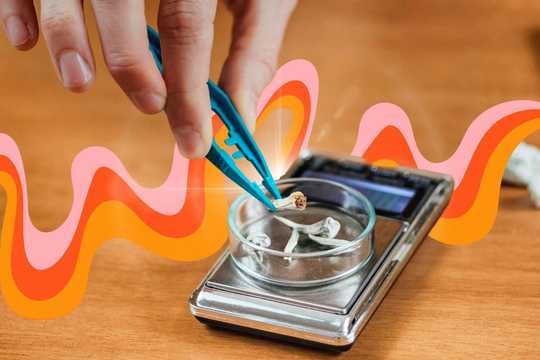Psychedelics open your mind. Prepare to put something in it.
“Preparation might be the most overlooked aspect of the psychedelic experience.”
— Dr. Steve Thayer
When I was young, preparing for a trip meant having some idea of what to expect. As a student, preparing meant homework. When I was a mountaineer, it meant getting in shape. And as a parent, preparing means considering all the details. Competitive preparation involves imagining every step in your mind, while being creative requires broad outlines and few details. The first is a struggle. The second is a release.
A psychedelic trip is all of these things, and your experience will be determined by how you prepare for it. There are two steps: being capable and arranging your resources.
Key Steps in Psychedelic Preparation
What you’ll read about psychedelic preparation focuses on packing your bags, ensuring safety, and getting comfortable. This pertains to the voyage, not the destination or your ability to reach it.
“We cannot emphasize enough how much it helps to enter into your psychedelic trip with a rested mind. This is why it’s of utmost importance to create calm and clarity in your life, with enough space and time for yourself. We understand this may be difficult at first, but you need to realize that this truly is the opposite of being selfish.”
— Bram van Leeuwen, from How Do I Prepare for a Psychedelic Trip
Is it safety or change that you want? Are you here for fun or growth? Growth is rarely fun. Change only comes with risk. If you’re looking for change, then you need an explorer’s frame of mind.
Taking a psychedelic is like going on a blind date with yourself. The less rigid you are and the less entitled you feel, the better the result. You are already committed to a long-term relationship with yourself. This is not a relaxed night out.
Set and Setting
If you’re interested in getting the most out of your experience, forget set and setting. By the time you’ve reached the point of arranging for these, the results have been locked in. Set and setting are the amenities on the front line. Aside from ensuring safety, set and setting arrange the pillows.
It’s your obligation to ensure your safety in any situation. You accomplish this in all the usual ways: knowing who you’re working with, knowing everyone’s intentions, knowing who is providing backup, and performing due diligence.
In my many altered state experiences, set and setting played little role in what transpired. Most pleasant situations went nowhere and did nothing. The most effective experiences were either unpleasant or did not fit on the comfort scale.
To use a business analogy, your investment carries risks and offers a return. Set and setting are issues of risk. Once safety is assured, your return on the experience is determined by who you are now and who you’re prepared to become.
During a psychedelic session of the Santo Daime Church, I was so repulsed by the subjugating nature of the ceremony that I left as soon as I could walk. There was no support for anyone outside the religious structure. Since there was no place to find relief, I got into my car and began to drive home.
It then became clear that I couldn’t see straight. I opened my car door and spent 30 minutes looking down to follow the double yellow line down the center of the highway. The lesson is that what seems normally adequate may be intolerable when you’re in an altered state of mind.
Integration
It’s popular to chop up your experience into three parts: environment (set and setting), the experience, and integration. Aside from the timing, these stages are three parts of the same experience, like three acts of a play.
I’m not here to talk about any of these three, as none of them are as important as preparation. When you are well-prepared, these acts work in synchrony. When you are ill-prepared, any of them may take you off the rails.
Integration is the most intentional phase. It’s an extension of how you prepare. Envision your psychedelic preparation as the setting up of what you aim to accomplish.
Intention
“I don’t think human beings learn anything without desperation. Desperation is a necessary ingredient to learning anything or creating anything. Period. If you ain’t desperate at some point, you ain’t interesting.”
— Jim Carrey, actor
Intention is portrayed as what you’re aiming for when going into a psychedelic experience. This is like asking what you intend by jumping off a bridge. Intentions are the things that have led you to that point, not the things you expect to come afterward. The important intentions are not what you expect will happen to you but how you intend to change.
Rephrase intention as commitment. What are you committing to? This casts the decision as one of action, not expectation. Applied to nighttime dreams, what you intend to dream won’t make any difference. It’s what you’re committed to that you’ll dream about. That still won’t make what you want happen, but it highlights the point that you must offer something.
Preparation
“The preparation phase includes and surpasses the concept of set and setting… and can be summarized as ‘how you are, where you are, and who you are with.’”
— D.M. Tripson, from The Psychedelic Experience: Preparation and Integration
Like the loose thread in a knitted sweater, psychedelic preparation goes back to the beginning. Unlike a sweater, there are many paths to get there. Preparation involves deciding what paths you’ll take and what destinations you’re prepared to visit. Your intentions mean little if you’re not invested in accomplishing them.
If this sounds like therapy, it is. I’m a therapist, but I’m also an explorer. When we say “psychedelic trip,” we’re talking about a journey of exploration. You’re getting a ticket to go somewhere. Are you going around the block or somewhere new?
The Role of Guides and Inner Exploration
The idea of safety is appealing because novelty is threatening. Without wiser guidance, we focus on these fears, and this better assures we will encounter them. That’s a good thing as encountering our fears is necessary, but protecting ourselves doesn’t help us see farther.
This is as far as intention goes: do you intend to watch comfortably or engage with the dragons at the gates? There is no right answer. More importantly, the landscape will change as you enter it.
Psychedelic preparation is like therapy without the therapist. There may be therapists in the future, but today’s therapists can’t help you. The closest you’ll find is a guide, an experienced psychonaut, or a shaman.
None of these are therapists. They are not here to heal you. A psychonaut can tell you what they’ve seen, and a shaman will help you reach the deep end. They are doorkeepers to the right doors, but they are not guides.
A guide is someone who both knows you and the territory you’ll enter. I question whether such people are available for hire. I believe the best guide will be someone inside of you. As a therapist, I’m always looking for that person in my clients.
The Work of Preparation
As psychedelic preparation, visualize past and future situations and gain a facility in dreamwork. Both of these vehicles explore the forests of your unconscious. The key to preparation is being able to talk to those people within yourself who you have not been listening to. To give yourself a larger voice than the one that reads the script you’ve been handed.
If you’re depressed, then you want to talk to your depression while you’re still in a semi-normal state. You’re going to have a more dramatic and less organized conversation when you open your gates of perception. Better to establish the conversation now.
A Journey’s Therapeutic Nature
Encountering parts of yourself is the kind of therapy you encounter in psychedelic journeys. It’s not just about healing injuries, it is also about strengthening yourself for change. The result may be more of a start than a conclusion.
Therapy is soul education and it must be cleansed of the stigma of disease management. We are told therapy is for disabled people, but the truth is that therapy, or as it is better termed “guidance,” expedites positive change.
If psychedelics are therapeutic, they require a therapeutic base. This consists of being grounded, open, flexible, and honest.
The Importance of Flexibility
The journey starts with calm and relaxation, not when the chemicals kick in. What you’ll accomplish is embodied in your initial state, which reflects all your preparation. You don’t want the chemicals to open the doors indiscriminately.
You are not the author of your journey but you are one of its producers. Other producers are either hidden within you or projected onto people in your outside world. If you’re honest with yourself, you may set the boundary of your exploration. You want the flexibility to move with this container without falling off the edge of the world.
Flexibility and strength come through stretching and exercise. What impedes flexibility is fear and tension, so you must prepare to encounter these. Where psychedelics boot you to the front lines of confrontation, flexibility is built through resilience, persistence, and gratitude.
People with skeletons in their closets would do well to recognize patience is needed. If you have not been practicing your whole life, give yourself a month before your psychedelic experience to think about it.
Flexibility and resilience are the most important skills in a psychedelic journey. These reach the limits of your mental health not because you’re weak but because you are an incomplete person. Your disenfranchised ghosts need to talk to you.
Anyone planning a therapeutic psychedelic experience should invest in an hour of psychedelic counseling but, unfortunately, it does not exist. As counselors become more psychedelically enabled, and psychonauts become more therapeutically aware, this sort of counseling will emerge.
You’re looking for the injured or overlooked parts of yourself, remnants of your forgotten past. Invite them all, even those you think you’ve vanquished. These parts will appear to a degree equal to the power of the experience. They will be easier to recognize if you invite them before you start.







